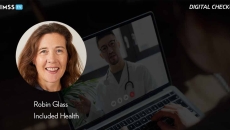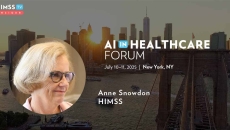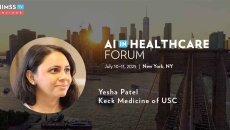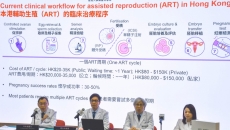Data and Information
Included Health President Robin Glass discusses cost-estimating tools and says that while AI alone is an amazing technology, "you've got to have a human in the loop" to validate efficacy and deliver an experience that puts some patients at ease.
The company launched its AI-powered Digital Workforce, offering lifelike, empathetic digital workers to support healthcare, HR, and sales functions across large enterprises.
The pair will expand Abridge's generative AI clinical documentation platform across the health system’s providers after a successful pilot.
The acquisition joins SeqOne's platform for sequencing analysis with Congenica's clinical decision support technology.
The company will use the funds to expand access to its AI-driven platform that allows providers to access and organize patient medical records.
Anne Snowdon, chief scientific research officer at HIMSS, says while there are many reasons why AI is more readily adopted by other sectors, the central one is that in healthcare, lives are at stake.
John Yount, chief innovation officer at FinThrive, discusses ways AI can eliminate inefficiencies and better reduce revenue leakage that typically stem from errors, delays and missed opportunities for reimbursement.
Keck Medicine of USC data scientist Yesha Patel says that the ideal AI tool implementation strategy depends on what the organization is trying to solve, whether there is in-house expertise, the long-term vision and other factors.
HKUMed researchers develop an AI model that automates sperm fertility assessment for assisted reproduction.
Roger Neal, VP and COO at DRH Health, says that due to the complexities of the healthcare industry, "our goal right now needs to be to get neutral" rather than getting ahead of cyberthreat challenges.






